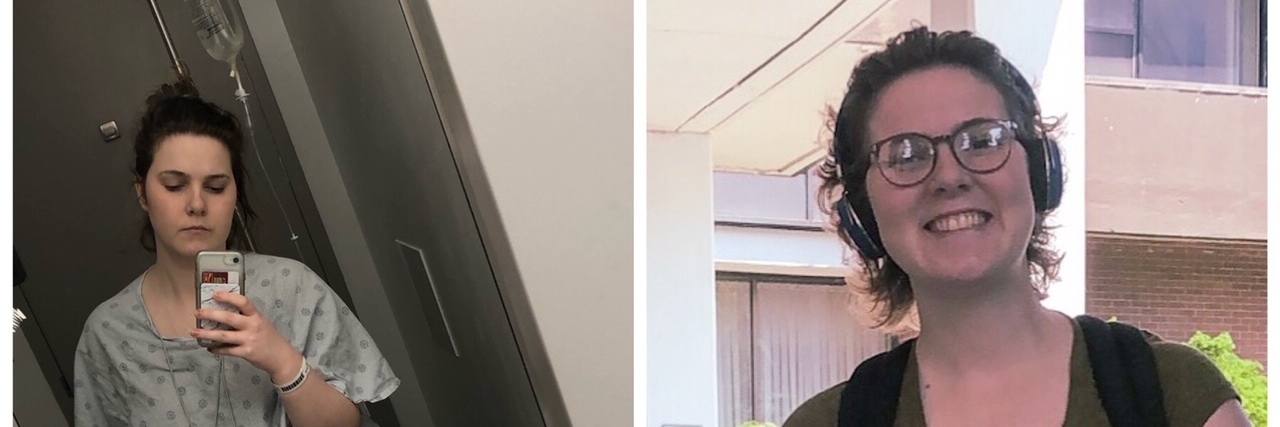There is very little space for people like me within the social work education classroom or in the field as passionate, motivated, dedicated, disabled young women. I do not fit the mold crafted by historical understandings of disability that are still reinforced today by society’s perception of what a “helping professional” should look and act like. I am the exception to almost everyone else in the classroom, who can use the stairs and can sit through a three-hour lecture without issue. Should I even be here?
Able-bodied individuals fill most social work positions, leaving little room to accommodate or even understand my needs. My illness — postural orthostatic tachycardia syndrome (POTS) — is invisible, making it even more challenging to be heard or accepted within this profession.
I would like to address my able-bodied classmates, who may never understand the tremendous challenge it is being a full-time student and a full-time chronically ill woman.
Dear classmates,
First, I was not accepted into this program on pity. I was accepted because of my empathy, compassion, and love for vulnerable populations and my commitment to advancing social justice.
I am not lazy. I do not “skip” classes.
When I leave the classroom and do not return for half an hour, I have been drawing up medication and pushing it through my PICC line for symptom relief so I have the ability to return to the classroom, to engage in robust discussions with you as I continue to learn and grow.
When I miss a class, I am in the hospital.
There is a difference between attendance and participation. Attendance is being in the classroom; participation is engaging with the content and lecture. My attendance record is not perfect, but my participation is extensive.
While you are writing essays and doing research, I am attending doctor’s appointments or undergoing procedures. While I wait for my name to be called, I am cramming in schoolwork, using data on my phone to do research and scrawling notes I will use to complete the assignment after my “disabled person duties” are done for the day. As I do so, I will be curled up on my couch in a level of pain that is incomprehensible to most able-bodied individuals.
When I receive extensions on projects, please remember that I have two full-time roles: being just like you, in the classroom — and managing my disability. My accommodations do not peg me above you. They are an attempt to level out the field and give me an equal chance of succeeding in this program.
Your morning routine likely does not include taking many medications or running a bag of fluids; mine does.
If I say I cannot complete a given task, believe me. I really cannot. With every fiber of my body, mind and soul, I am working to obtain this degree. My body screams at me every second of the day while I smile and ignore the searing pain.
Please do not call me a disruption when I leave the classroom. My chronic pain demands that I move to alleviate some of my symptoms.
Please remember that while we have our differences, I want our similarities of our commitment to justice, equity, love and acceptance to bond us together. I am human. Allow me the room to embrace my disability as an asset in this program and profession so the tough lessons I have learned through navigating a world not designed for me can be transferred to the vulnerable clients I will serve.
Finally, as we part ways and pursue our social work careers separately, please remember this one lesson from being my classmate: disabled humans deserve the same rights as any other human. Fight for and with them. Be an ally.
Sincerely,
Your proudly disabled social work classmate
P.S. I will no longer remain silent or pretend to be an able-bodied woman.
Society must learn to normalize disabilities so there are safe spaces for me to inhabit and niches where I can thrive.
I am going to be a fierce social worker advocating for my clients every single day, even if there is a bag of saline running through my veins as I do so.
To answer my first question of, “Should I even be here?”
Absolutely.

